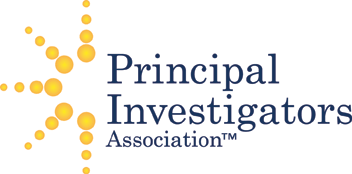|
NIH Career Awards foster the independence of promising new investigators by providing mentorship, salary support, and protected time to develop a research program. There are various types of transitional Career Development mechanisms. The most commonly awarded K’s are the K08 (Mentored Clinical Scientist Developmental Award), K23 (Mentored Patient-Oriented Research Career Development Award), and K01 (Mentored Research Scientist Development Award), but there are many to choose from the K01 to the K99/R00 as well as the F32 and F33. During this educational pack, your expert presenters dig into the different NIH training and career development programs, discuss what programs are tailored to specific individuals during their career, and provide an overview of how to write a competitive award. Walk away with tactics you can implement right away and take your career to new heights. Limited-Time Offer! Now you can obtain this educational pack, offering 3.5 hours of unparalleled information, for an exclusive rate of $199 (a $499 value).
|
|
The NIH Career Development Awards provide protected time for research and career development for investigators in the biomedical, behavioral, or clinical sciences. These awards have a common goal: to help develop highly trained, independent research scientists. Deciding on the correct mechanism for you will be influenced by many factors, including whether you have a research or health professional degree and whether you have had any previous federal funding among others. Unlike other NIH grants, K awards usually have a higher success rate. This is good news for you, therefore deciding on the correct mechanism from the start is key. During this information-packed Webinar, your expert presenter will detail the major types of awards for basic researchers as well as clinical, offer techniques for deciding if a particular mechanism is right for you, and shine some light on your funding chances in comparison to an R01. You will learn how each of these awards are individualized, why choosing the correct training mentor is vital and much more! 5 Key Webinar Take-Aways:
Who Should Attend: Those who wonder if this is a good mechanism or administrators who might want to suggest this mechanism to promising young investigators. Presented by: Dorothy Lewis, PhD
|
 On-Demand Webinar: NIH Career Development (K) Awards: Taking Your On-Demand Webinar: NIH Career Development (K) Awards: Taking Your Research Career to New Heights
Career Development Awards (K awards) are one of the most successful NIH programs that have helped launched many productive investigator careers. Over the past 5 years, K award funding has steadily increased NIH-wide, and in 2011, overall K award success rates were 35% across all institutes. However, many investigators often miss funding opportunities because they are not aware of the kinds of career awards available to them and what’s expected of the trainee in securing an award. Researchers who receive K awards have longer careers as principal investigators and are more likely to lead center grants, program project grants, and training grants. Recipients of K awards are also more likely to direct large research projects, and publish more and higher quality articles than either unsuccessful applicants for K awards or R01 recipients at the same career stage who did not receive career development support. Despite this, evidence shows that many promising candidates that would qualify for a career award and their mentors are often unaware of how the program and mechanism works and the strategies to write a compelling and successful career development award. 5 Key Take-Aways:
Who Should Attend: Anyone interested in a career in academic medicine and interested in an NIH Career Award–postdocs, junior faculty, students. Presented by: Christopher Dant, PhD |
|
Order online, call 800-303-0129 ext. 506 or fax or mail your order in today! Please note: Each format includes PDF Handouts. CDs are mailed within 48 hours via US Mail, MP4 and PDF Transcripts are emailed from [email protected] within 48 hours.
|
|
These Webinars are brought to you as a training tool by the Principal Investigators Association, which is an independent organization. The information presented and its contents are not connected with the National Institutes of Health (NIH) or the National Science Foundation (NSF), nor are they endorsed by these agencies. All views expressed are those personally held by the author and are not official government policies or opinions. |







